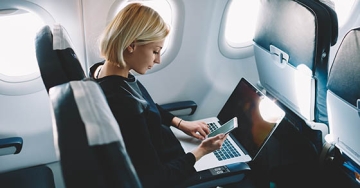Recent News & Blog / Planning a summer business trip? Turn travel into tax deductions

June 2, 2025
If you or your employees are heading out of town for business this summer, it’s important to understand what travel expenses can be deducted under current tax law. To qualify, the travel must be necessary for your business and require an overnight stay within the United States.
Note: Under the Tax Cuts and Jobs Act, employees can’t deduct their unreimbursed travel expenses on their own tax returns through 2025. That’s because unreimbursed employee business expenses are “miscellaneous itemized deductions” that aren’t deductible through 2025. In the “One, Big, Beautiful Bill,” passed by the U.S. House and now being considered by the Senate, miscellaneous itemized deductions would be permanently eliminated. Keep in mind that pending legislation could still change.
However, self-employed individuals and businesses can continue to deduct business expenses, including expenses for away-from-home travel.
Deduction rules to know
Travel expenses like airfare, taxi rides and other transportation costs for out-of-town business trips are deductible. You can deduct the cost of meals and lodging, even if meals aren’t tied directly to a business discussion. However, meal deductions are limited to 50% in 2025.
Keep in mind that expenses must be reasonable based on the facts and circumstances. Extravagant or lavish meals and lodging aren’t deductible. However, this doesn’t mean you have to frequent inexpensive restaurants. According to IRS Publication 463, Travel, Gift and Car Expenses, “Meal expenses won’t be disallowed merely because they are more than a fixed dollar amount or because the meals take place at deluxe restaurants, hotels or resorts.”
What other expenses are deductible? Items such as dry cleaning, business calls and laptop rentals are deductible if they’re business-related. However, entertainment and personal costs (for example, sightseeing, movies and pet boarding) aren’t deductible.
Business vs. personal travel
If you combine business with leisure, you’ll need to divide the expenses. Here are the basic rules:
- Business days only. Meals and lodging are deductible only for the days spent on business.
- Travel costs. If the primary purpose of the trip is business, the full cost of getting there and back (for example, airfare) is deductible. If the trip is mainly personal, those travel costs aren’t deductible at all.
- Time matters. In an audit, the IRS often considers the proportion of time spent on business versus personal activities when determining the primary purpose of the trip.
Note: The primary purpose rules are stricter for international travel.
Special considerations
If you’re attending a seminar or conference, be prepared to prove that it’s business-related and not just a vacation in disguise. Keep all relevant documentation that can help prove the professional or business nature of the travel.
What about bringing your spouse along? Travel expenses for a spouse generally aren’t deductible unless he or she is a bona fide employee and the travel serves a legitimate business purpose.
Maximize deductions
Tax rules can be tricky, especially when business and personal travel overlap. To protect your deductions, keep receipts and detailed records of dates, locations, business purposes and attendees (for meals). Reach out to us for guidance on what’s deductible in your specific situation. Contact us at the form below or visit our related service page for more information.
© 2025
Related Article: When can you deduct business meals and entertainment?
Related Article: Traveling for business? What can you deduct?
Related Article: Keeping meticulous records is the key to tax deductions and painless IRS audits
Related Article: Keep these DOs and DON'Ts in mind when deducting business meal and vehicle expenses